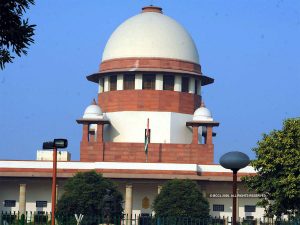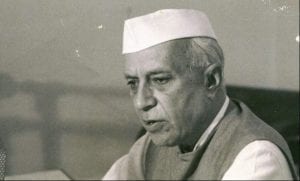
Scrap sedition, but courts must act on misuse of draconian laws

The Supreme Court has indicated that it sees no reason why the colonial-era crime of sedition should live on among Independent India’s statutes, throttling citizen’s liberty on an increasing number of occasions, and asked the government to respond. The government’s lawyer has told the apex court that it is open to fixing parameters for invoking Section 124A of the Indian Penal Code on sedition. Sedition should cease to be available to the police as a convenient trap for vocal dissidents, but that is not enough.
There are a variety of other laws that the police misuse to curb freedom and silence critics. What the court needs to do is to impose stringent penalties on police officers and members of the lower judiciary who frame charges under stringent provisions of the law, such as under the National Security Act (NSA) and the Unlawful Activities (Prevention) Act, solely to silence criticism of the government, subverting the original intent of the law as well as the right to liberty and free speech of the citizens concerned.

Section 124(A) of the IPC has become a popular tool of those in power to clamp down on criticism, especially after the Modi government took office. The National Crimes Record Bureau (NCRB) figures show that in 2019, the number of instances of people being charged with sedition went up 160 per cent over the level in 2016. One third the prosecutions used to result in a guilty verdict in 2016, whereas by 2019, the conviction rate had fallen to 3.3 per cent.
The Indian Penal Code was drafted by Lord Macaulay, the same gentleman who introduced English education in India, guided by the firm conviction that the knowledge accessible through Sanskrit, Persian and Arabic was paltry, compared even to a school textbook of contemporary England. Sedition entered the IPC 10 years later, in 1870, via an amendment. The law was amended again, in 1898, to provide for the punishment of transportation for life.
The leaders of the freedom movement viewed sedition with a jaundiced eye. The British had used that provision against Balgangadhar Tilak and Mohandas Karamchand Gandhi. So, when the Constituent Assembly considered the draft placed by the chairman of the committee for fundamental rights, Sardar Vallabhbhai Patel, wholly unaware of monumental follies to be perpetrated in his name decades later, it balked: the right to free speech was sought to be qualified with, among other things, seditious speech. Socialist member Somnath Lahiri led the charge against the provision. The final version of Article 19 on the right to free speech and the exceptions that qualified it omitted any reference to sedition.
Barely 17 months after the adoption of the Constitution by the Constituent Assembly on November 26, 1949, and 15 months of its coming into force on January 26, 1950, the government moved the first amendment to the Constitution. The amendment responded to assorted court rulings that brought within the ambit of freedom of expression incitement to violence and murder, calls for communal hatred and war with Pakistan. India then was a young Republic, the wounds of Partition still raw. Shyama Prasad Mukherjee fumed against the mistreatment of Hindus in East Pakistan and opposed the Nehru-Liaqat pact, meant to protect minorities in each nation. RSS mouthpiece Organiser not only talked about Akhand Bharat but also contained material that aggravated hostility between Hindus and Muslims. Attempts by the government to conduct a pre-publication scrutiny of the journal was struck down by the courts. Further, high courts were defeating or delaying state-level laws to abolish zamindari and redistribute land, giving primacy to the right property.
Also read: Sedition: State’s weapon to suppress legitimate expression
The government of Madras banned, under the Madras Maintenance of Public Order Act, a Communist-oriented magazine, Cross Roads, edited by Romesh Thapar, whose sister Romila Thapar remains an active voice in contemporary public discourse. In newly-independent India, Communists were a robust force and went on to form the largest single Opposition group in the first Lok Sabha. They were deemed a threat, as no one could foresee their eventual self-marginalisation in the polity under the ‘leadership’ of an armchair dogmatist.
Romesh Thapar challenged the ban in the Supreme Court, and won. The top court struck down the ban, on the ground that a threat to public order did not amount to a threat to the security of the state, which alone was deemed a sufficient condition warranting restrictions on free speech, under the Constitutional guarantee of free speech as originally presented. The government order for pre-publication scrutiny of the contents of the Organiser, published by Brij Mohan, was similarly struck down as violative of the right to freedom of speech and expression.
The final straw was a ruling by the Patna high court, in which Justice Sarjoo Prasad annulled efforts by the state government to regulate the printing preferences of Bharati Press, run by one Shaila Bala Devi. The press brought out a leaflet, Sangram, which carried the purported demand of Kali, the goddess, for blood and revolution. The judge wrote that incitement to murder was free speech protected by Article 19.1(a), recounts Abhinav Chandrachud, in his 2020 book, Republic of Free Speech.
So, the government, with Nehru as Prime Minister, Patel as home minister and BR Ambedkar as law minister, moved the first amendment. It made several qualifications to our fundamental rights. The right to non-discrimination by the state was amended to add a provision for affirmative action for economically and educationally backward groups and for the Scheduled Castes and Tribes, this being necessary to realise the right to equality of those who are, in material reality, unequal. The right to property was qualified to legitimise land reforms. The right to free speech was amended to introduce qualifications for public order, friendly relations with other nations, incitement to violence and causing enmity between groups.

Even then, sedition or seditious speech did not figure among the exceptions to the right to free speech. Nehru, in fact, fulminated against the crime of sedition on the floor of Parliament, calling it obnoxious and objectionable. But he did not scrap it during his long tenure as prime minister. In fact, in 1955, Section 124 was amended further, to replace life imprisonment for colonial-era transportation for life as the maximum penalty.
In Britain itself, sedition was removed from the statute book by a court order in 2009. But the evil they brought in lives on in India. If India were to scrap the charge of sedition, it would be one more step towards decolonisation.
In the case of sedition, Supreme Court rulings have been pretty clear that unless there is express incitement of violence against the state, a charge of sedition will not hold. The case of Balwant Singh and Bhupinder Singh, two Punjab civil servants who shouted ‘Khalistan Zindabad, Hindustan Murdabad’ and ‘Raj Karega Khalsa’ amidst the unrest in the wake of the assassination of Indira Gandhi on October 31 1984 had been convicted for Sedition by the lower courts but later acquitted by the Supreme Court. Random sloganeering does not amount to sedition, the judges ruled. It should be fairly straightforward for any judge or police officer at any level to figure out when a charge of sedition is appropriate. But crooked is the path of rivers, foot trails and Indian policemen, their political masters and the lower judiciary.
Also read: Sedition cases: Arrest false complainants and prosecutors, not critics
Even if Sedition is removed from the statute book, the liberty of Indian citizens would still be at risk from arbitrary use of draconian laws such as NSA and UAPA. NSA and UAPA have been used to incarcerate anyone the state does not like for long years, with no penalty whatsoever for those who booked them under these laws or for those who framed charges under these laws to permit imprisonment awaiting trial that does not commence for years, and result in acquittal, far more often than otherwise.
Other sections of the IPC are liable to misuse as well. Sections 153A deals with promoting enmity between groups. 153B deals with making an assertion that is likely to cause disharmony or enmity towards a group. Section 268 is on causing annoyance to the public. These are all ill-defined, vague and waiting to be abused.
Reports often crop up of people being acquitted after spending seven, nine or more years in jail, after being arrested under draconian laws, wasting their youth behind bars, denied an opportunity to establish a career or start a family — with no penalty to pay for the state or its underlings.
Right now, those accused of a terror plot in the aftermath of the Bhima Koregaon violence have been in jail since mid-2018, with the state making no effort to begin prosecution. If they have evidence, they should prosecute the accused, if not, they should let them go.
Policemen who arbitrarily slap such charges against people and the lower judiciary who merrily agree to formally frame those charges against the accused should face severe penalties for infringing citizen liberty guaranteed by the Constitution they have sworn to uphold. The state should pay compensation to the victims and recover the monies from functionaries who had reasonable grounds to know they were acting in bad faith when they framed those charges and infringed citizen liberty. If such provisions are ordered by the Supreme Court, that would advance the cause of liberty. Merely scrapping sedition would not.
(The Federal seeks to present views and opinions from all sides of the spectrum. The information, ideas or opinions in the articles are of the author and do not necessarily reflect the views of The Federal)


